Small businesses are on the rise in the U.S., and according to MIT, they thrive or die based on location. Where you choose to start a business can be one of the most important decisions you make as an entrepreneur; location determines quality of life, cost/tax burdens, and the size of the consumer market.
Given the importance of location, FitSmallBusiness.com sought to determine the best and worst states to start a business in 2019 based on key financial, social, and demographic factors. The patterns we discovered were not surprising: the states at the top of our list enjoyed ample funding (through loans and grants), a large and educated labor pool, and low tax burdens. The worst states suffered from lower average incomes — indicating less “spending money” for businesses’ target consumers — poor quality of life, and limited startup resources.
It’s worth noting, however, that there was no solid geographic pattern uncovered in our study. States in both our best and worst lists stretched from north to south and coast to coast. So while location itself is a key consideration for new businesses, it’s clear that key factors are less tied to any geographical pattern and more to the nuanced business, financial, and social makeup of each state.
We considered the following data points in our study:
- General business environment (30%) – We looked at statistics on how businesses fare in each state by considering data on economic growth, the percentage of new businesses, and business survivability rates. States with sustained growth and innovation were preferred in our consideration.
- Tax climate (20%) – Tax rates vary greatly from state to state and directly affect profit margins. This, in turn, can determine whether or not a business is able to succeed. For this reason, our ranking favored states with lower taxes.
- Startup costs & availability of funding (20%) – The cost to start a business and the availability of funding — such as business loans and grants — varies by state and can greatly impact the feasibility of starting a business. We looked for states that have lower costs and significant funding opportunities.
- Labor market (10%) – Businesses are only as good as the people running them, so we sought states that have low unemployment rates, indicating a healthy labor market. We also look at the percentage of the total population with some level of higher education, indicating a skilled workforce.
- Quality of life (10%) – Work-life balance impacts a business owner’s quality of life and the likelihood they can avoid burnout, so we looked at quality of life scores by state. These scores consider the favorability of both natural and social environments.
- Cost of living (10%) – New business owners need to live somewhere that is affordable, leaving them with more money for their business. Therefore, lower cost of living was favored in our ranking.
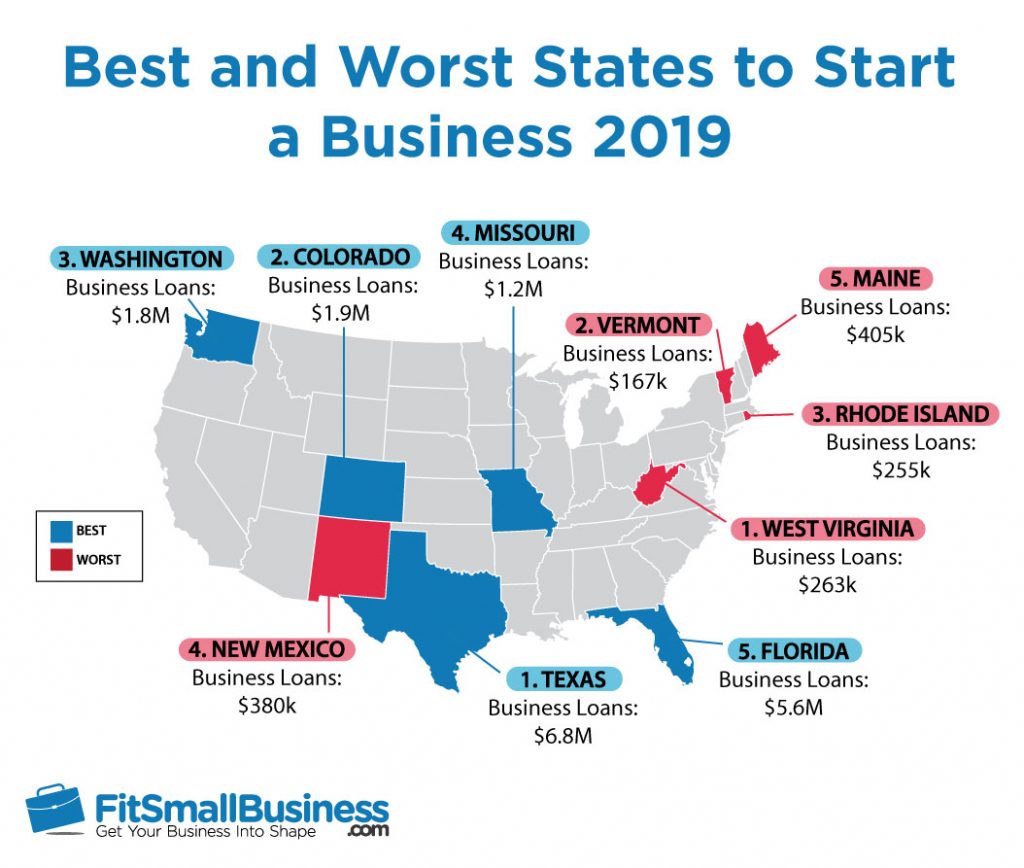
Best & Worst States to Start a Business in 2019
5 Best States to Start a Business
Here are the 5 best states to start a business in 2019:
1. Texas

No. 1 Best State to Start a Business: Texas
The Lone Star State is the nation’s best state to start a business. It lands at No. 1 for its business-friendly climate that promotes and fosters a flourishing free market. Why? Well, it has no corporate tax or income tax, along with one of the nation’s highest business survivability rates. Also, Texas boasts the nation’s second highest number of small businesses, giving entrepreneurs a large support network.
Texas gives entrepreneurs even more than a good regulatory environment to start and grow a business. It also has a great deal of funding and financing available to startups, with the nation’s fifth highest amount of startup funding and financing; in fact, over $6.8 billion in business loans was granted in the last year. On top of that, the state boasts a lengthy list of startup resources, from the Texas Entrepreneurs Network to the Dallas Entrepreneur Center.
2. Colorado
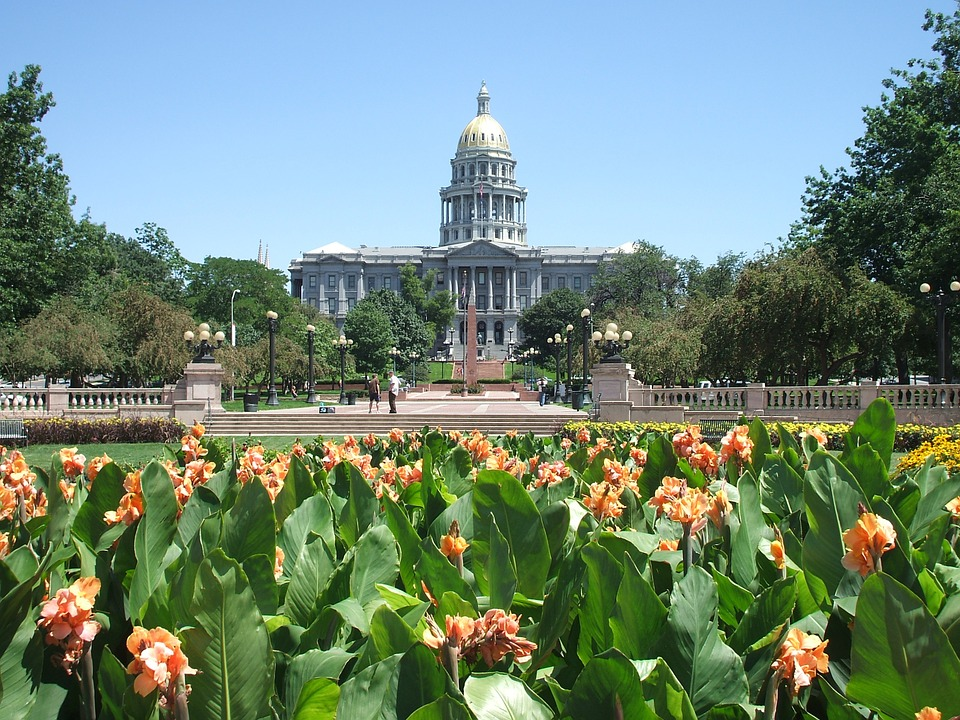
No. 2 Best State to Start a Business: Colorado
It’s not just millennials flocking to Colorado — it’s also entrepreneurs. Taking the second spot for best states for entrepreneurs, Colorado proves to be a great place for business founders of all ages. It has lower-than-average startup costs and corporate taxes, with a promising labor market that has the country’s fifth highest percentage of residents with a bachelor’s degree. This gives businesses a high-quality labor pool to tap when they’re ready to scale.
With such a youthful, educated, and entrepreneurial population, it’s no wonder that Colorado provides a great deal of business resources and events, including Denver Startup Week and entrepreneurial accelerator programs TechStars and Boomtown Accelerators. On top of the abundance of resources, Colorado-based business owners get a lively community and a great quality of life for those into outdoor sports.
3. Washington
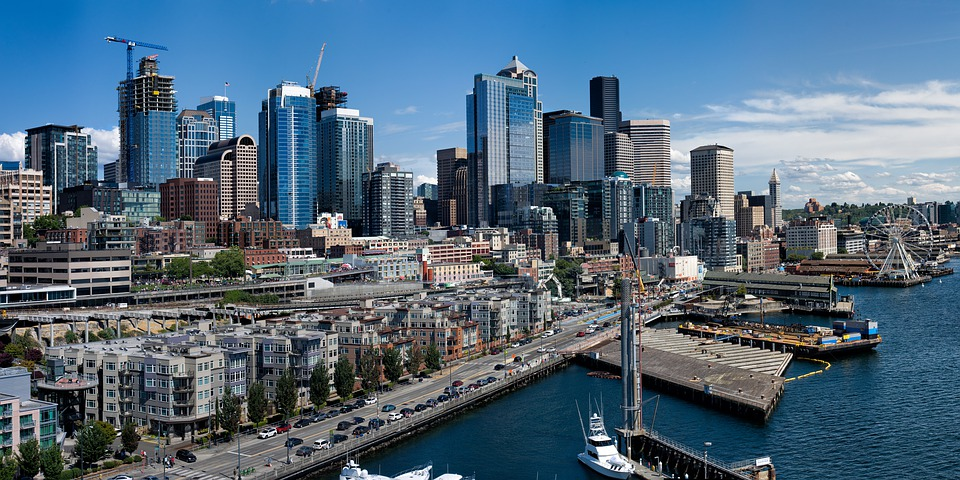
No. 3 Best State to Start a Business: Washington
Washington, home to tech-rich Seattle, is the nation’s third best state for entrepreneurs. Seattle is a haven for entrepreneurs and is often compared to Silicon Valley. Washington state, however, has a few things California doesn’t — including no corporate or income taxes, a very high safety rating, and a high economic growth rate at 4.3% year-over-year (the average hovers near 3.9%).
It’s no secret Washington state has produced some of the world’s leading companies — including Starbucks, Microsoft, and Amazon — and is paving the way as a leading location for those in tech. Additionally, it offers entrepreneurs a vast amount of resources, from startup groups and accelerators to a large number of entrepreneurship events.
4. Missouri
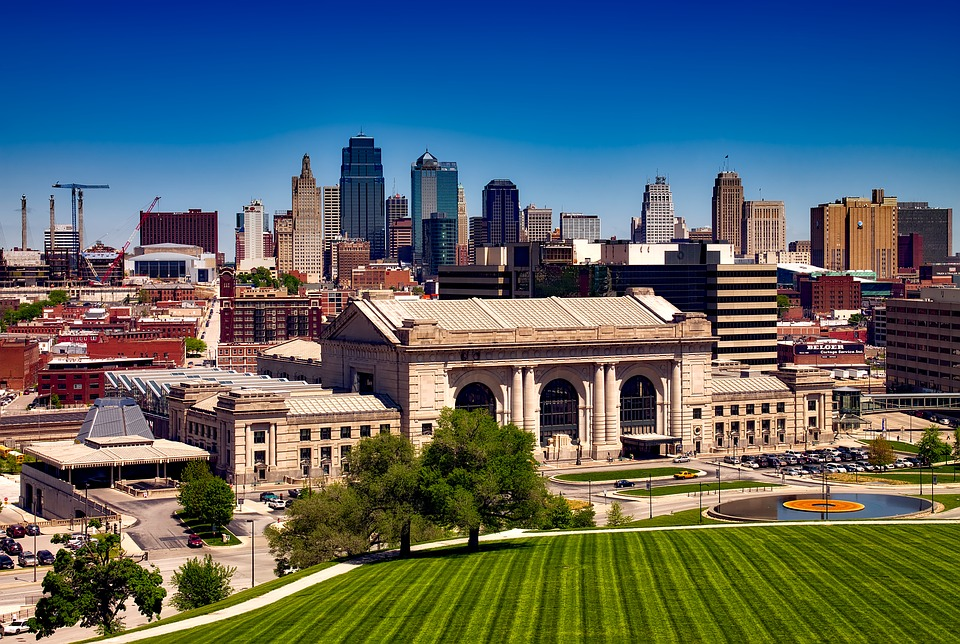
No. 4 Best State to Start a Business: Missouri
Missouri isn’t just producing great barbeque and beer, it’s also becoming a top spot for entrepreneurs. It takes the fourth position as the best state for entrepreneurs, largely due to it having the highest business survivability rate in the country at 85.32% in the first year — above the national average of 80%
What helps startups and small businesses flourish here may be the Show Me State’s network of business owners and wealth of entrepreneurial and small business resources — despite not being a larger or more well-known startup state. It’s also an easy place to live with a low average cost of living and a high rating in terms of social and natural environments, giving locals a good work-life balance.
5. Florida
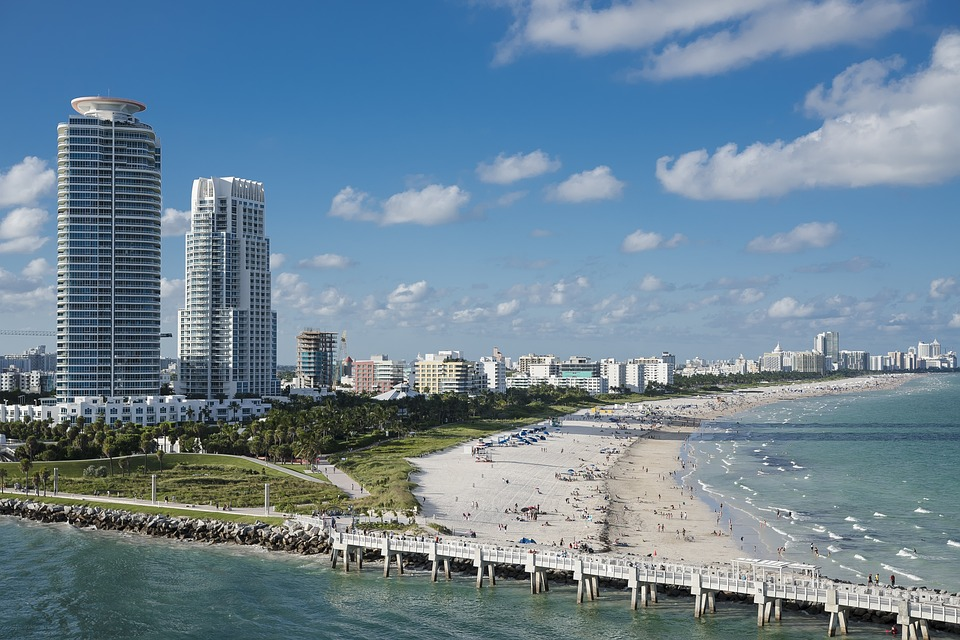
No. 5 Best State to Start a Business: Florida
Florida is more than a destination for family vacations, it’s also the nation’s fifth best state for entrepreneurs. It has the third highest number of small businesses in the country with over 2.5 million and is in the country’s top 10 for business financing with over $5.6 billion in business loans granted in 2018. It has a favorable tax climate with no income tax combined with a manageable 5.5% corporate tax rate.
The Sunshine State has a below-average cost of living and is well-positioned for those doing business with the Caribbean or Central/South America, on top of being a short flight to major cities from New York to Austin. Florida leads the nation in tourism, making it a particularly good state for entrepreneurs in tourism, as well as outdoor sports and recreation. It has the highest natural environment rating, contributing to a high quality of life for entrepreneurs.
5 Worst States to Start a Business
Here are the 5 worst states to start a business in 2019:
1. West Virginia

No. 1 Worst State to Start a Business: West Virginia
West Virginia might be rich in history and natural scenery, but it’s a poor place for entrepreneurs. It lands at the overall worst state in American to start a business, mainly due to its economy. Its below average cost of living is offset by the third highest unemployment in the country at 5.2% and a low economic growth rate.
What’s more, business owners that will depend on quality staff and a healthy market will likely bite the dust in West Virginia. It has the lowest percentage of residents with a bachelor’s degree in the country at only 19.9% and a low average income of $47,265. This points to a stunted economy, a limited market, and small labor pool.
2. Vermont

No. 2 Worst State to Start a Business: Vermont
Vermont is a great destination to watch the leaves turn colors, but it’s not a great place to start a business and turn a profit. It’s the country’s second worst state to start a business, largely due to it’s expensive environment. It has both high tax rates, high business startup costs, and a high cost of living. Where it isn’t lacking, it’s simply average; the state’s business survivability rate and economic growth rate are middle of the road.
Vermont has a tradition for keeping it local — especially when it comes to food. While there are a few examples, such as Ben & Jerry’s, that prove nationwide brands can be born in Vermont, it’s rare. Short of looking to build a local food business, entrepreneurs looking to put down roots in New England should opt for its neighboring state, New Hampshire, which clocks in at No. 8 on our list of the best and worst states to start a business.
3. Rhode Island
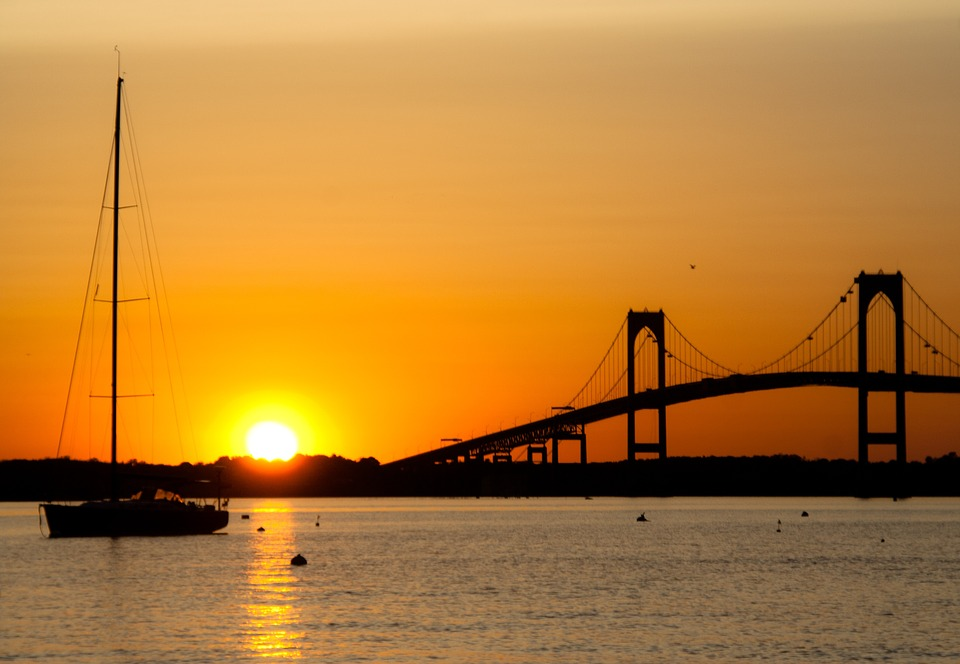
No. 3 Worst State to Start a Business: Rhode Island
Entrepreneurs may find starting a business in Rhode Island is anything but smooth sailing. The main reason it ranks so poorly is its combination of cost of living and market size. It also has the 10th highest cost of living but only an average income of $58,838, leaving locals with less money to spend on business development. What’s more, the state has high taxes, cutting into profit margins.
Rhode Island’s financial barrier to business success is proven by its low business survivability rate. It also has the fifth highest cost of business incorporation filing fees, as well as a great deal of regulations that local businesses face. New Englanders keen to start a business should jump ship to New Hampshire, the eighth best, or Massachusetts, the 12th best state to start a business.
4. New Mexico
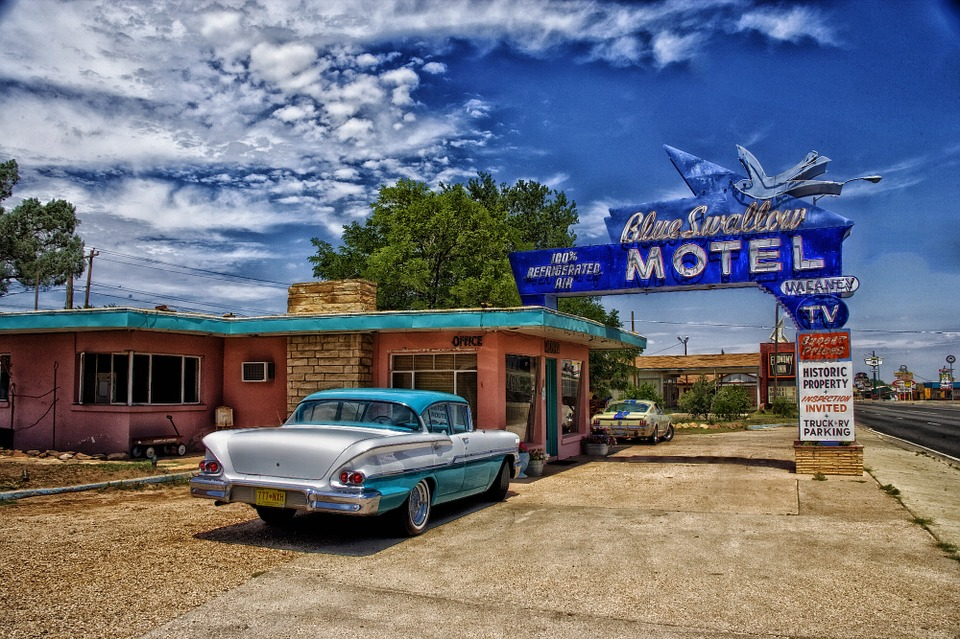
No. 4 Worst State to Start a Business: New Mexico
New Mexico is undeniably one of the worst states in which to start a business, largely due to the lack of a viable market. It has a below average cost of living, but the nation’s fourth lowest average income per capita of $48,074. This comes along with the fourth highest unemployment rate in the U.S. at 5.1% and an economic growth of only 1.7% — half the national average. Also, it has a low percentage of new businesses year-over-year and the 10th lowest business survivability rating.
Even with a largely available labor pool — given its high unemployment rate — New Mexico has a low percentage of residents with a bachelor’s degree, which may make finding staff for many skilled fields, such as tech, a challenge. The good news is, entrepreneurs can simply cross over to Texas or Colorado, each of which is in the nation’s best states to start a business.
5. Maine

No. 5 Worst State to Start a Business: Maine
Maine is known for many things, from its picturesque and rugged coastline dotted with lighthouses to world-renowned lobster. It’s not, however, known for entrepreneurship. Often described as a highly-regulated “nanny state,” Maine is one of the highest taxed states in the country. Also, it has a high cost of living and a low median income.
While Maine does have a high business survivability rate, it has a below-average economic growth rate at just 3.2%, the nation’s sixth lowest percentage of new businesses year-over-year at 1.9%, and just $406 million in business loans in the last year. What this says is that while it’s not a good state for those starting a business that demands a lot of local resources, it may be a good place for those starting a business with a good deal of money already in the bank.
Complete Ranking of Best States to Start a Business 2019
|
STATE |
OVERALL RANK |
||||||
|---|---|---|---|---|---|---|---|
|
Texas |
46 |
48 |
34 |
26 |
22 |
28.8 |
1 |
|
Colorado |
35 |
41 |
27 |
32.5 |
31 |
21.3 |
2 |
|
Washington |
34 |
47 |
25 |
20 |
23 |
28.0 |
3 |
|
Missouri |
30 |
30 |
35.5 |
39.5 |
20 |
27.5 |
4 |
|
Florida |
44 |
42 |
14 |
32 |
19 |
23.8 |
5 |
|
Michigan |
37 |
31 |
30.5 |
28 |
16 |
29.5 |
6 |
|
Tennessee |
29 |
39 |
29.5 |
31 |
15 |
27.3 |
7 |
|
New Hampshire |
10 |
45 |
32.5 |
26 |
33 |
14.3 |
8 |
|
Virginia |
36 |
32 |
31.5 |
14.5 |
33 |
21.0 |
9 |
|
Utah |
24 |
37 |
32.5 |
16.5 |
28 |
20.3 |
10 |
|
South Dakota |
8 |
49 |
29 |
42 |
20 |
13.5 |
11 |
|
Massachusetts |
35 |
18 |
28 |
17.5 |
35 |
30.0 |
12 |
|
Georgia |
38 |
33 |
29 |
28 |
20 |
18.5 |
13 |
|
Ohio |
39 |
43 |
31 |
20.5 |
11 |
19.8 |
14 |
|
Oklahoma |
23 |
34 |
33.5 |
41 |
14 |
12.0 |
15 |
|
Montana |
13 |
38 |
13.5 |
39 |
19 |
15.8 |
16 |
|
Alabama |
27 |
35 |
26 |
30 |
12 |
21.8 |
17 |
|
New York |
45 |
16 |
9 |
18.5 |
27 |
29.5 |
18 |
|
North Carolina |
40 |
27 |
22 |
17 |
20 |
23.3 |
19 |
|
Pennsylvania |
43 |
19 |
25 |
17.5 |
20 |
26.8 |
20 |
|
Wyoming |
2 |
50 |
43 |
30.5 |
13 |
6.8 |
21 |
|
Delaware |
7 |
36 |
27 |
21 |
24 |
16.5 |
22 |
|
South Carolina |
26 |
24 |
19 |
31 |
17 |
24.0 |
23 |
|
North Dakota |
5 |
40 |
34 |
35 |
25 |
4.5 |
24 |
|
Minnesota |
31 |
3 |
32 |
26 |
30 |
24.8 |
25 |
|
Wisconsin |
28 |
11 |
29.5 |
30 |
24 |
21.0 |
26 |
|
Illinois |
41 |
10 |
30.5 |
19.5 |
23 |
24.8 |
27 |
|
Oregon |
29 |
26 |
12.5 |
23 |
21 |
19.8 |
28 |
|
Maryland |
32 |
14 |
28.5 |
18 |
31 |
17.5 |
29 |
|
Kansas |
16 |
23 |
36.5 |
35.5 |
25 |
7.3 |
30 |
|
Mississippi |
18 |
29 |
25.5 |
47.5 |
4 |
14.0 |
31 |
|
California |
47 |
1 |
13.5 |
16.5 |
23 |
32.5 |
32 |
|
Nevada |
22 |
46 |
15 |
18.5 |
8 |
13.8 |
33 |
|
Arizona |
33 |
28 |
21.5 |
17 |
12 |
18.8 |
34 |
|
New Jersey |
42 |
5 |
25 |
10 |
28 |
25.3 |
35 |
|
Alaska |
4 |
44 |
28 |
37 |
13 |
7.3 |
36 |
|
Indiana |
30 |
20 |
32 |
8.5 |
13 |
22.3 |
37 |
|
Nebraska |
15 |
13 |
33 |
31.5 |
26 |
9.3 |
38 |
|
Arkansas |
20 |
17 |
25.5 |
44.5 |
9 |
13.5 |
39 |
|
Iowa |
19 |
2 |
36.5 |
26.5 |
21 |
17.8 |
40 |
|
Connecticut |
29 |
7 |
25.5 |
9.5 |
30 |
21.5 |
41 |
|
Louisiana |
25 |
22 |
20 |
29 |
5 |
19.8 |
42 |
|
Kentucky |
21 |
24 |
18.5 |
27.5 |
8 |
16.3 |
43 |
|
Hawaii |
14 |
21 |
19.5 |
11.5 |
28 |
10.5 |
44 |
|
Idaho |
17 |
9 |
21 |
29 |
18 |
19.5 |
45 |
|
Maine |
12 |
8 |
12.5 |
20.5 |
23 |
21.5 |
46 |
|
New Mexico |
11 |
25 |
21 |
38 |
9 |
7.8 |
47 |
|
Rhode Island |
6 |
15 |
19.5 |
17.5 |
25 |
12.8 |
48 |
|
Vermont |
1 |
6 |
17 |
13 |
34 |
13.8 |
49 |
|
West Virginia |
9 |
12 |
19 |
16 |
2 |
14.5 |
50 |
Click here to see all data considered in our study.
Ranking Methodology
All states were ranked using six main metric categories. These include factors that influence a startup’s ability to succeed, as well as the quality of life for entrepreneurs launching new businesses. The data we collected was analyzed and weighted based on the importance of each category.
Here is an overview of our ranking methodology:
Small Business Environment & Opportunity (30%)
To determine which states yield the most entrepreneurs, particularly successful entrepreneurs, we looked at data on each state’s economic growth rate, the year-over-year percentage of new businesses, the number of small businesses, and business survivability rates. This data is available from the U.S. Small Business Administration and the Kauffman Index.
Tax Climate (20%)
Taxes can directly affect a business’s profit margins, and in return, its ability to survive. Since each state has varying taxes, we considered the following: income tax, corporate tax, and sales tax (via Tax Rates and the Sales Tax Institute) with a preference for those that have the lowest taxes.
Startup Costs & Funding (20%)
States have widely varying fees related to legally registering a business, such as cost to incorporate and annual filing fees. These alone are small factors, though they were weighed with the much more critical availability of startup funding. This information is available from Small Biz Trends and the U.S. Small Business Administration.
Labor Pool (10%)
People are at the heart of a business’s success, so we considered the size and education-level of the labor pool in each state. To determine this, we looked at the average education level of adults in each state and unemployment rates as provided by the Bureau of Labor Statistics.
Quality of Life (10%)
Entrepreneurs are known for burning the candle on both ends and working incredibly long hours. In order to help an entrepreneur avoid burnout, they need to maintain a work-life balance. For that reason, we considered the quality of life for each state, based on safety ratings, as well as natural and social environments offering opportunities for enjoyment outside of work. Sources for this information include Business Insider and Money.com.
Cost of Living (10%)
Entrepreneurs are generally on a tight budget, and while there are a lot of great places to live, not all of them are affordable. We analyzed the cost of living index for each state (per the Missouri Economic Research and Information Center) to determine which are the most affordable, leaving founders with more money to invest in their business.
Bottom Line – Best States to Start a Business
Entrepreneurs often think their business idea is bound for success, but in a country where only 10% of startups succeed, entrepreneurs should use every opportunity to position their business for success. This includes strategically choosing the state to start it in. Considering states like Texas, Colorado, and Washington will help set entrepreneurs up for success and give their businesses more than a dream to stand on.
Read More
0 تعليقات